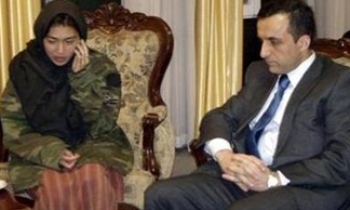A court in Yemen's capital Sanaa has imposed a fine of one million Yemeni rial on opposition newspaper Al-Thowri and banned two of its journalists from writing for six months. The court on Saturday said the newspaper will have to issue an apology on the last page for three successive editions to two government officials based on defamation charges.

The two journalists who received a suspended sentence of banning from writing, Fikri Qassim and Salahaddin Al-Dakkak, expressed outrage at the sentence, calling it a violation of their human rights, Yemen Times reported.
Meanwhile, another weekly newspaper Sawt Al-Shoura's editor-in-chief Abdullah Ali Sabri also stood trial in a case filed by the deputy minister of interior Mohamed Al-Qawsi, who insisted on trying Sabri again after he was acquitted from the same charges filed by the ministry. Al-Qawsi pressed charges for 'personal damage' caused by articles published by the newspaper.
Sawt Al-Shoura, which currently stays suspended after its equipment were stolen earlier this year, had published a news story saying that Al-Qawsi issued written orders to prison staffers to intimidate journalist Abdul Kareem Al-Khaiwani while in prison for a verdict in another defamation lawsuit filed by the government against him.
There are several lawsuits against opposition newspapers pending in the courts and are being looked at by different courts in Sanaa. Among them is a case raised by journalist Mohamed Al-Maqaleh for an article he wrote for Al-Thowri urging President Saleh to give away some of his authority. His case will be looked into next Saturday. The newspaper also expects hearings in four more cases next Wednesday.
Opposition newspapers have been the target of various lawsuits by government officials or bodies in the last few years. In some cases, verdicts were issued to fine or even close down newspapers and ban journalists from writing. In a few cases, journalists have been ultimately imprisoned for criticising the head of the state or the regime.
Journalists and international pro-press freedom organisations have complained of the lack of independence in the judiciary, whose highest supreme council is headed by the president. This had consequently resulted in verdicts in favour of the government in the majority of cases filed against journalists.
Meanwhile, the case of journalist Jamal Amer, who was kidnapped last August and assaulted by armed men, was abandoned by the public prosecutor without identifying the motives behind the crime, News Yemen reported. Al-Wasat newspaper, which Jamal Amer manages, protested this development in a statement and vowed to hold the authorities accountable for the consequences of neglecting his case.
The paper condemned the "carelessness" of the authorities in dealing with the case, which has been pending for two months without having the authorities apprehend the perpetrators who were allegedly using a vehicle belonging to the Republican Guards.
On August 23, four men seized Jamal Amer and bundled him into a waiting car. Amer said the men punched him, accused him of getting funding from the US and Kuwaiti embassies, and warned him about defaming unspecified "officials." Amer said he was released about four hours later. He said he believes a car used in the abduction belonged to the Yemeni Republican Guard, based on the numeric configuration of its license plate. Just before the attack, Al-Wasat, alleging nepotism, published the names of relatives of government officials who were recipients of government scholarships to study abroad.
The ministry of interior had promised to arrive at the bottom of the case and the minister promised to be involved personally in pursuing the facts and bring those responsible to justice. The Al-Wasat statement said that "this adds to earlier doubts that the authority was indeed involved in the attack against colleague Amer, particularly as official newspapers cast doubt on the honesty of the attacked journalist before the investigation started."
The statement urged civil society organisations including the Yemeni Journalists Syndicate to shoulder their responsibility and react to the pattern of attacks against journalists, which makes their job to unveil corruption more difficult. It called for a solid and united stance against oppressors of press freedom in the country and put an end to the recent wave of attacks on Yemeni journalists.
On November 4, Suwailih, a cameraman for the pan-Arab news channel Al-Arabiya, and al-Sharabi, a correspondent for the Saudi Arabia-based satellite channel Al-Ekhbariya, were covering a strike by employees of a public textile factory in Sanaa when they were attacked by Yemeni security officers. Suwailih was beaten when he refused to hand over his camera, suffering internal bleeding, three broken ribs, and severe bruising on his legs, an Al-Arabiya spokesman told the New York-based Committee to Protect Journalists (CPJ).
Both journalists were detained for several hours at a nearby police station where they were threatened by the same officers who attacked them earlier. The Yemeni ministry of interior said it would launch an investigation into the attack, but no police officer has been held responsible as yet, according to local journalists and representatives of the Yemeni Journalists Syndicate.









